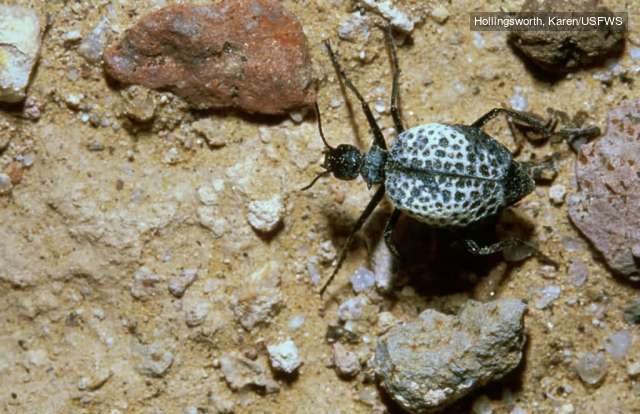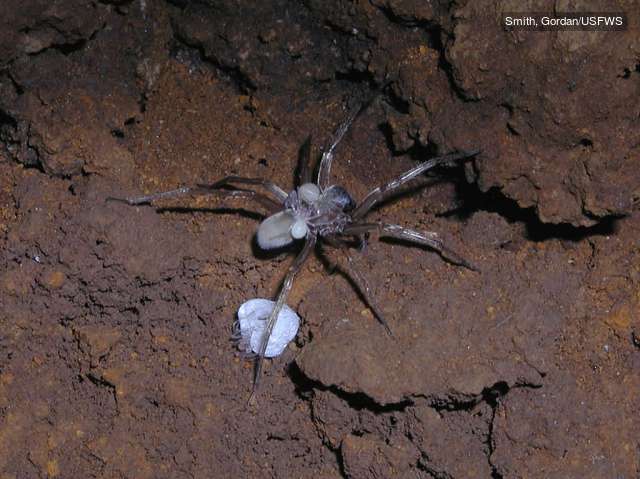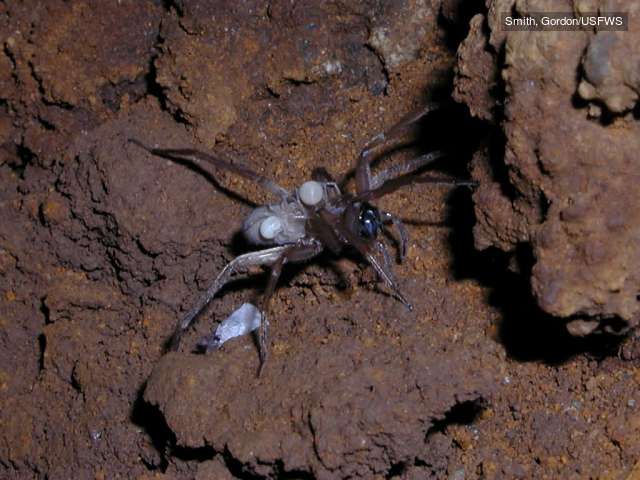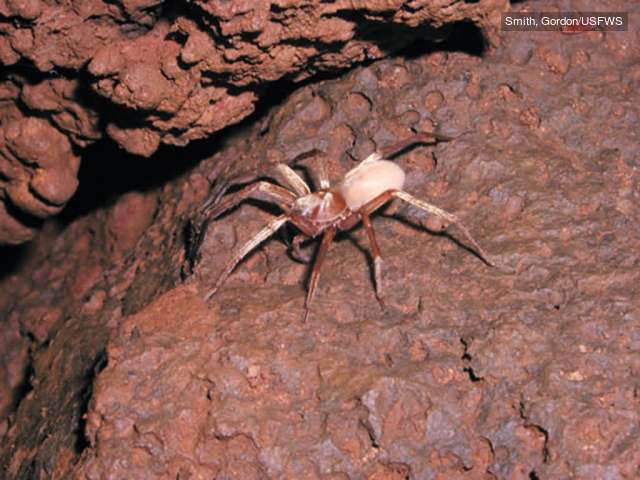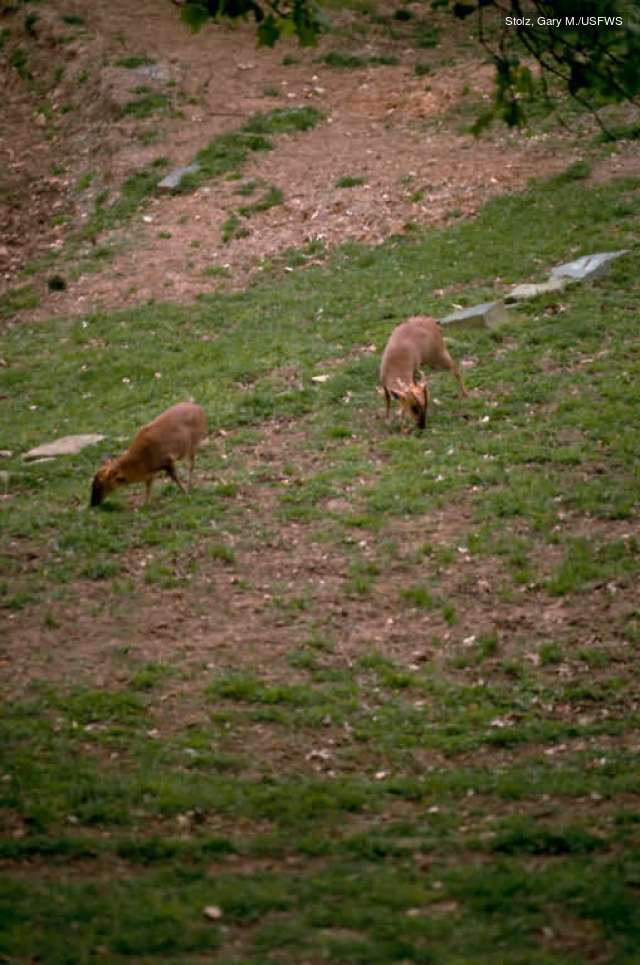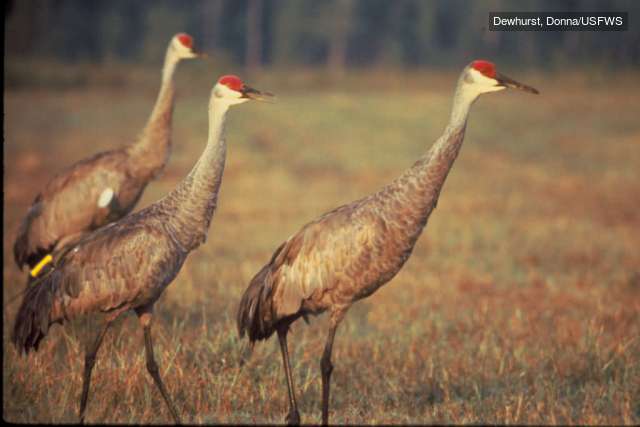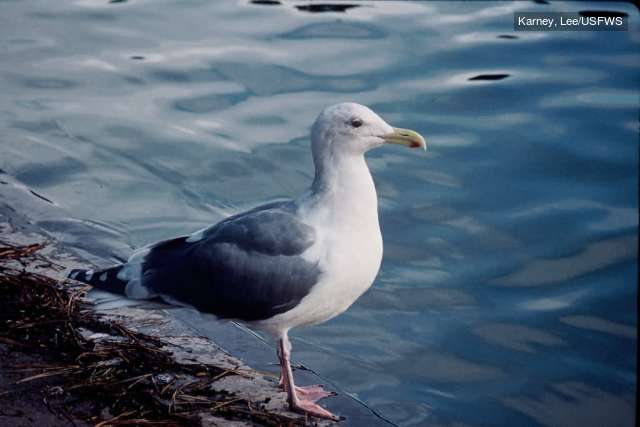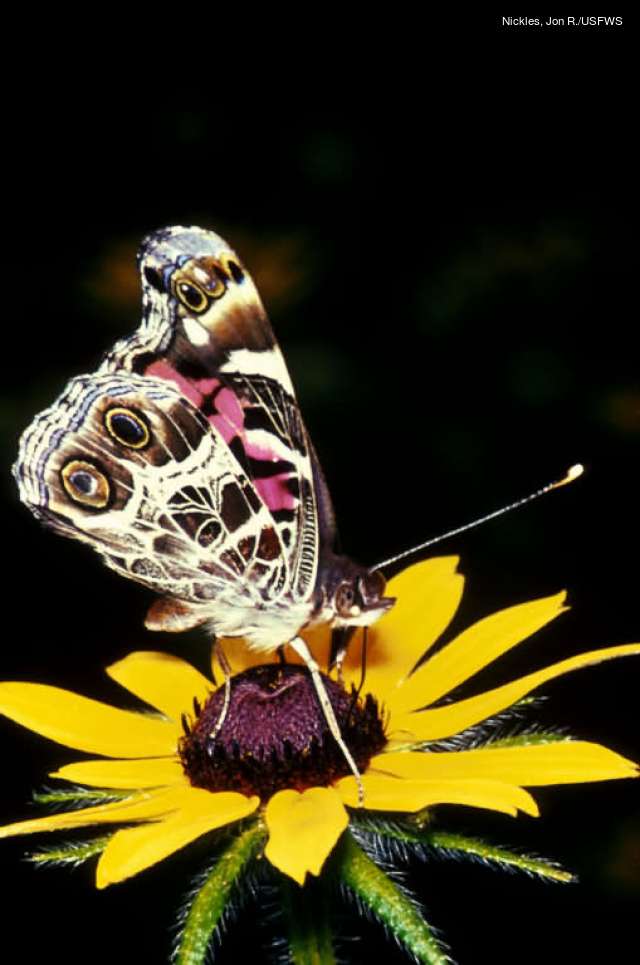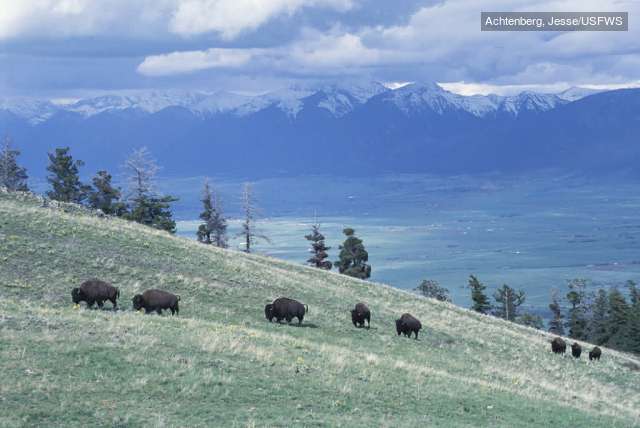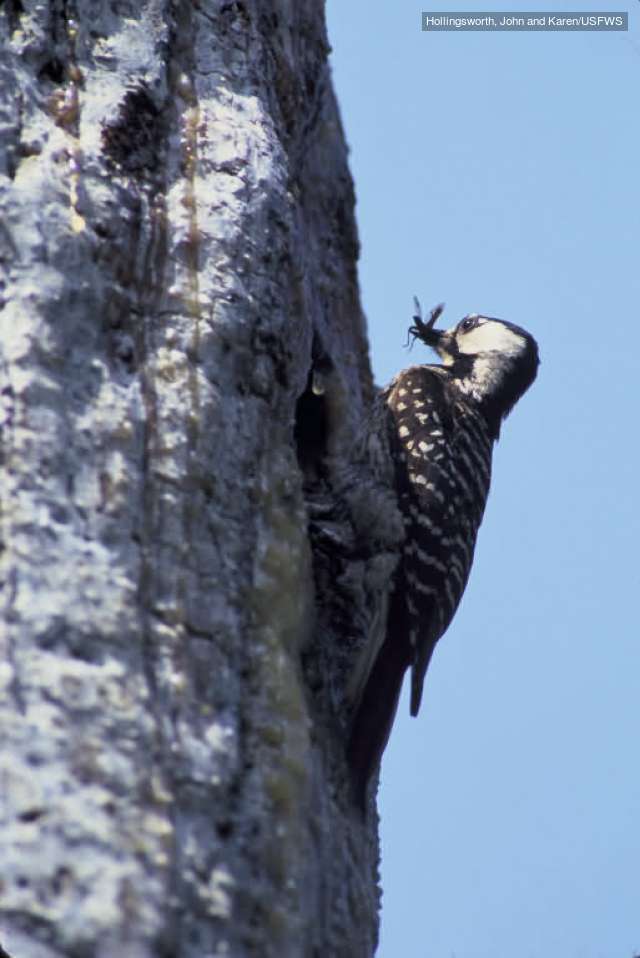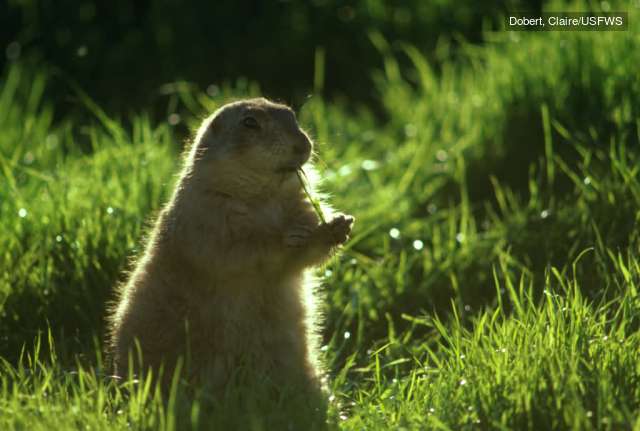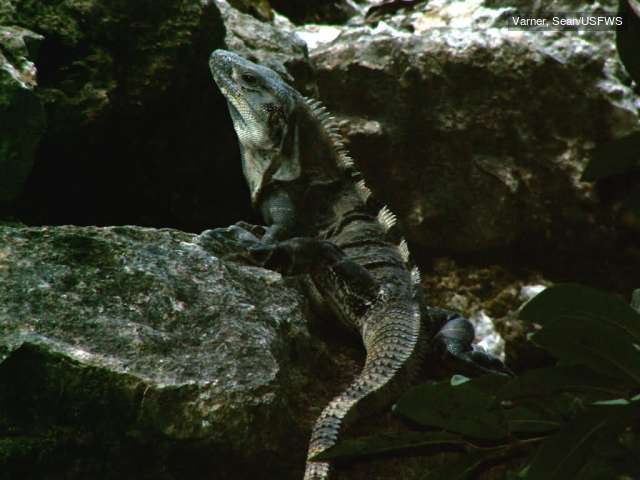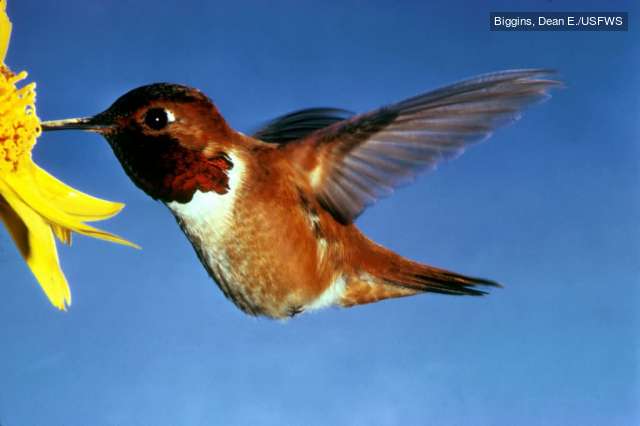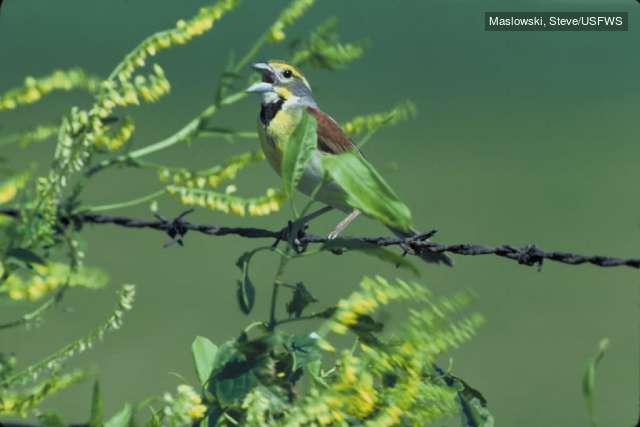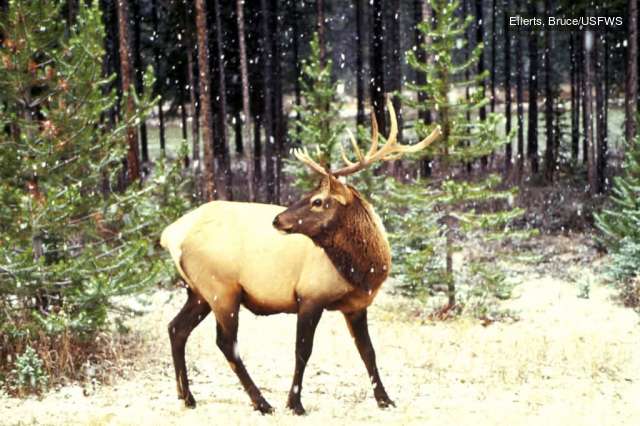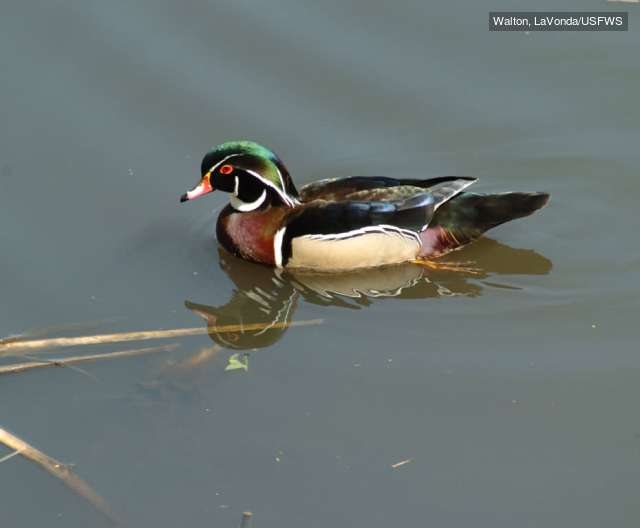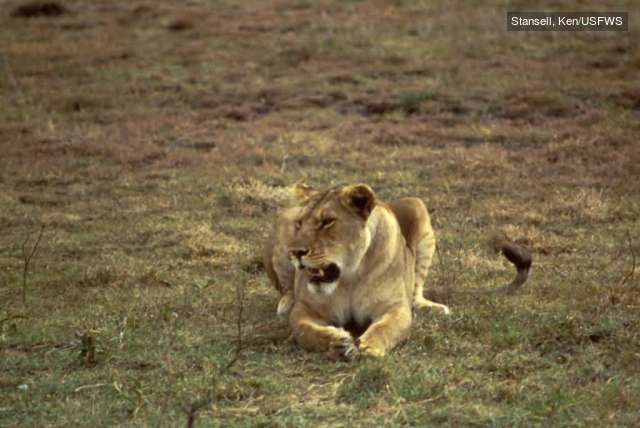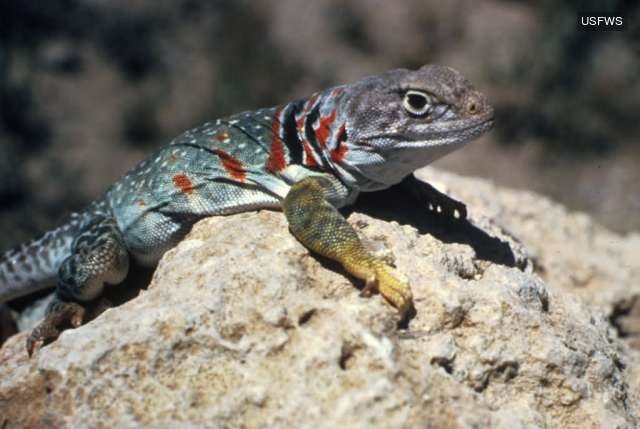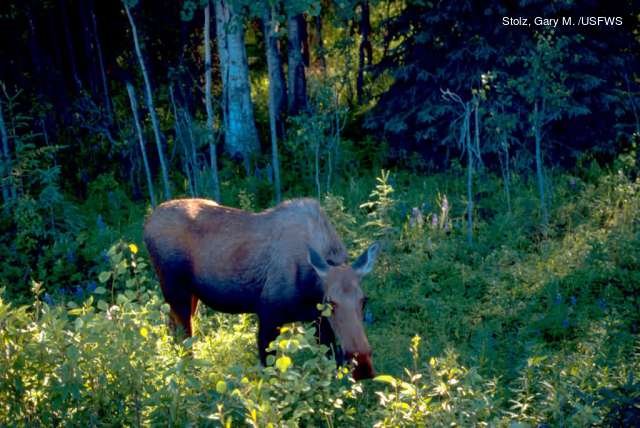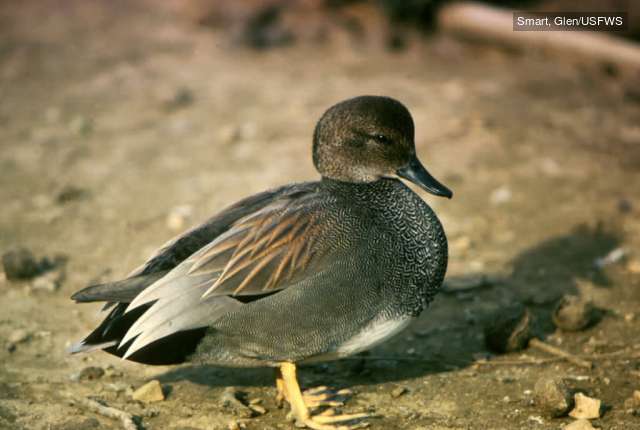Shareblast - Enjoy Funny Videos, Jokes & Images
checking
WOE202 Kauai Cave Wolf Spider, newly hatched spiderlings. The Kauai cave wolf spider is a mid-size (0.50 to 0.75-inch) hunting spider that has completely lost its eyes as part of its adapation to life in lava tubes. Instead of building webs, it chase and grabs its prey or may utilize sit-and-wait ambush tactics. Unlike most wolf spiders that produce 100 to 300 spiderlings per clutch, the Kauai cave wolf spider is believed to produce fewer than 30 spiderlings per clutch. Newly hatched spiderlings are unusually large and are carried on the back of the female for only a few days. (Smith, Gordan/USFWS)
1 Activity
7476 Views
Like 1 Download
Earlier
WOE203 Kauai Cave Wolf Spider, newly hatched spiderlings. The Kauai cave wolf spider is a mid-size (0.50 to 0.75-inch) hunting spider that has completely lost its eyes as part of its adapation to life in lava tubes. Instead of building webs, it chase and grabs its prey or may utilize sit-and-wait ambush tactics. Unlike most wolf spiders that produce 100 to 300 spiderlings per clutch, the Kauai cave wolf spider is believed to produce fewer than 30 spiderlings per clutch. Newly hatched spiderlings are unusually large and are carried on the back of the female for only a few days. (Smith, Gordon/USFWS)
7332 Views
Like Download
Earlier
WOE204 Kauai Cave Wolf Spider. The Kauai cave wolf spider is a mid-sized (0.50 to 0.75-inch) hunting spider that has completely lost its eyes as part of its adaptation to life in lava tubes. Instead of building webs, it chases and grabs its prey or may utilize sit-and wait ambush tactics. Unlike most wolf spiders that produce 100 to 300 spiderlings per clutch, the Kauai cave wolf spider is believed to produce fewer that 30 spiderlings per clutch. Newly hatched spiderlings are unusually large and are carried on the back of the female for only a few days. (Smith, Gordon/USFWS)
1 Activity
4073 Views
Like 1 Download
Earlier
Mississippi Sandhill Cranes. Mississippi Sandhill Cranes (Dewhurst, Donna/USFWS)
3350 Views
Like Download
Earlier
Western Gull. Along much of the Pacific coast, this is the only nesting gull. Breeding colonies are located on rocky headlands or offshore islands. The Western Gull is primarily a bird of the coast, but many move upriver at the end of the breeding season when the salmon are running. (Karney, Lee/USFWS)
3649 Views
Like Download
Earlier
Painted Lady Butterfly. Painted Lady Butterfly (Nickles, Jon R./USFWS)
1 Activity
3993 Views
Like 1 Download
Earlier
Red-cockaded woodpecker. For more information on status, go to: http://ecos.fws.gov/servlet/SpeciesProfile?spcode=B04F (Hollingsworth, John and Karen/USFWS)
3392 Views
Like Download
Earlier
WOE117 Spinytail Iguana. A large, robust lizard with a raised crest of scales down the back to the base of the tail. Small, smooth scales on body contrasting with large, rough, keeled spines ringing the tail. A lizard that prefers open sand or rocky areas with holes and crevices in which to hide. Feeds mostly on leaves and fruits but will also eat small animals. (Varner, Sean/USFWS)
5770 Views
Like Download
Earlier
Rufous Hummingbird. Rufous Hummingbird (Biggins, Dean E./USFWS)
1 Activity
3430 Views
Like 1 Download
Earlier
